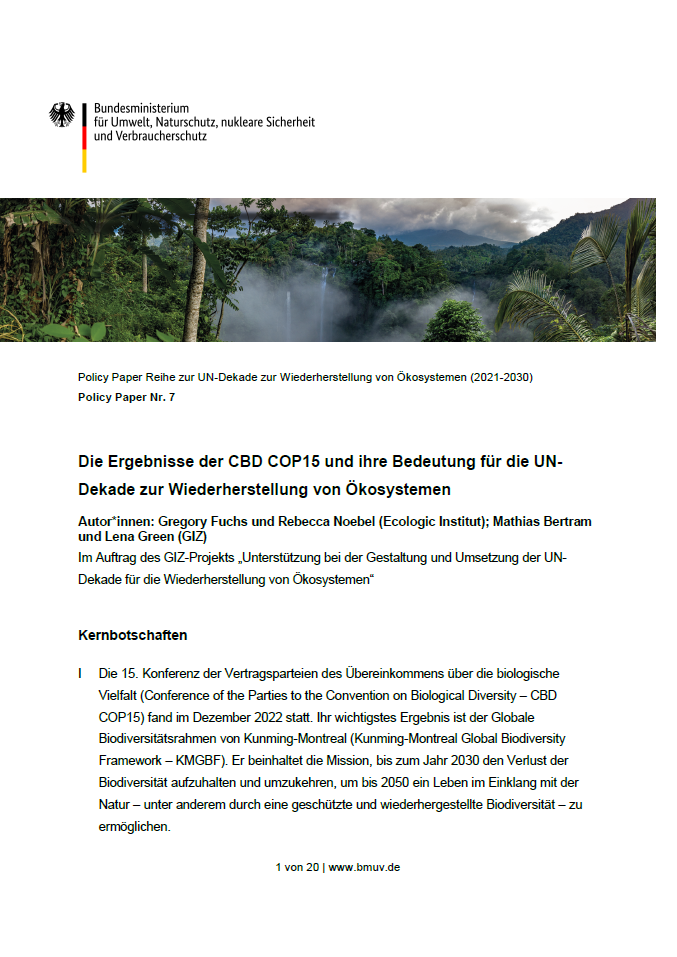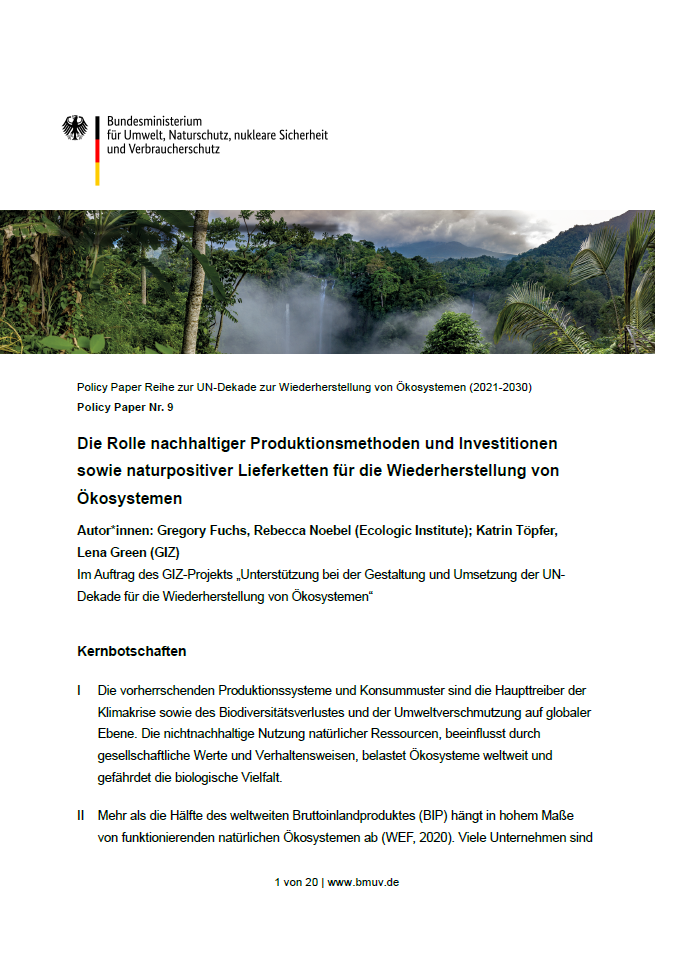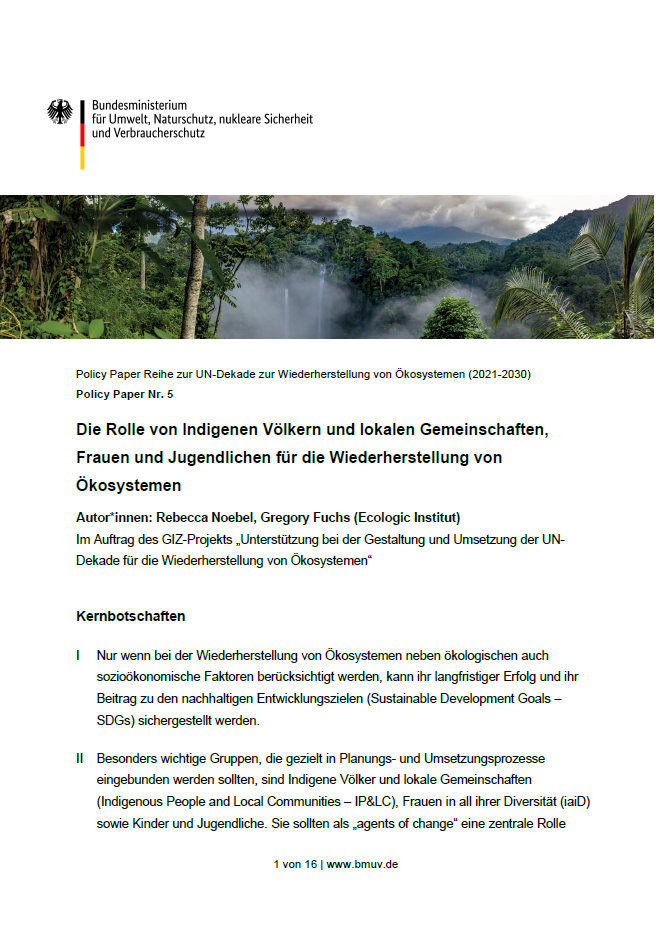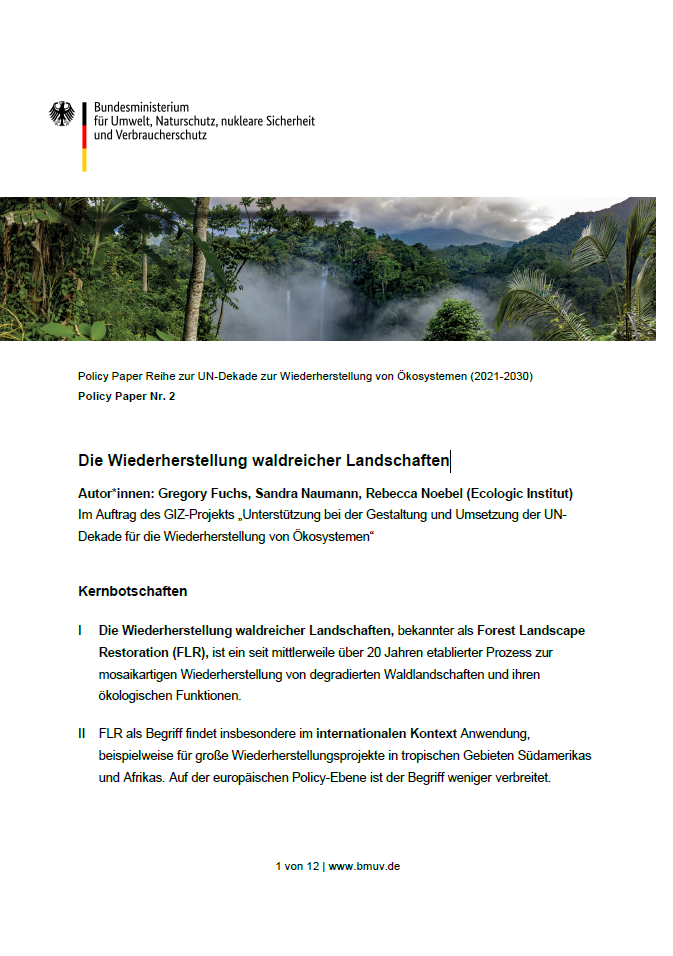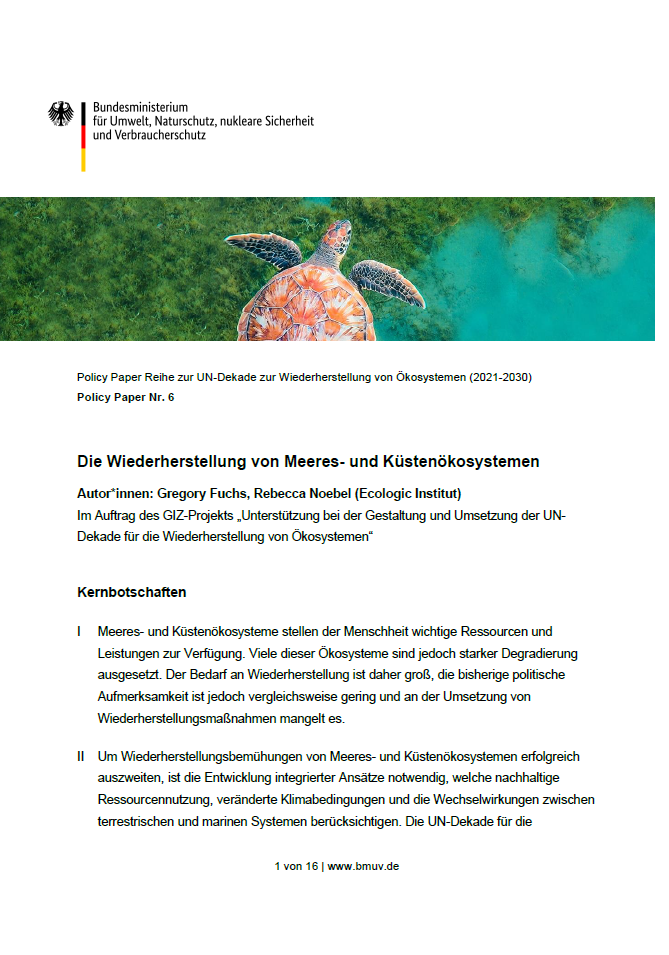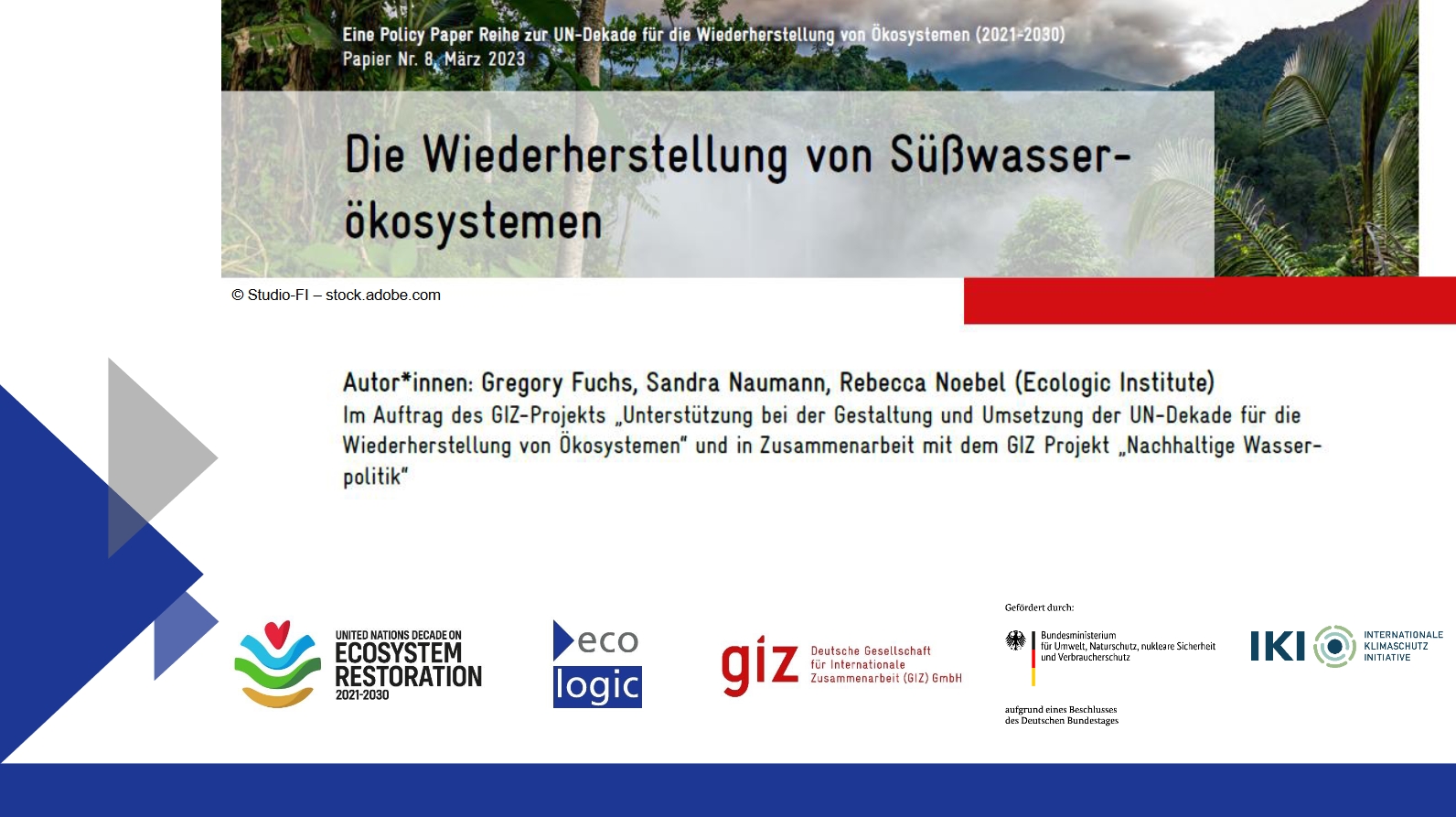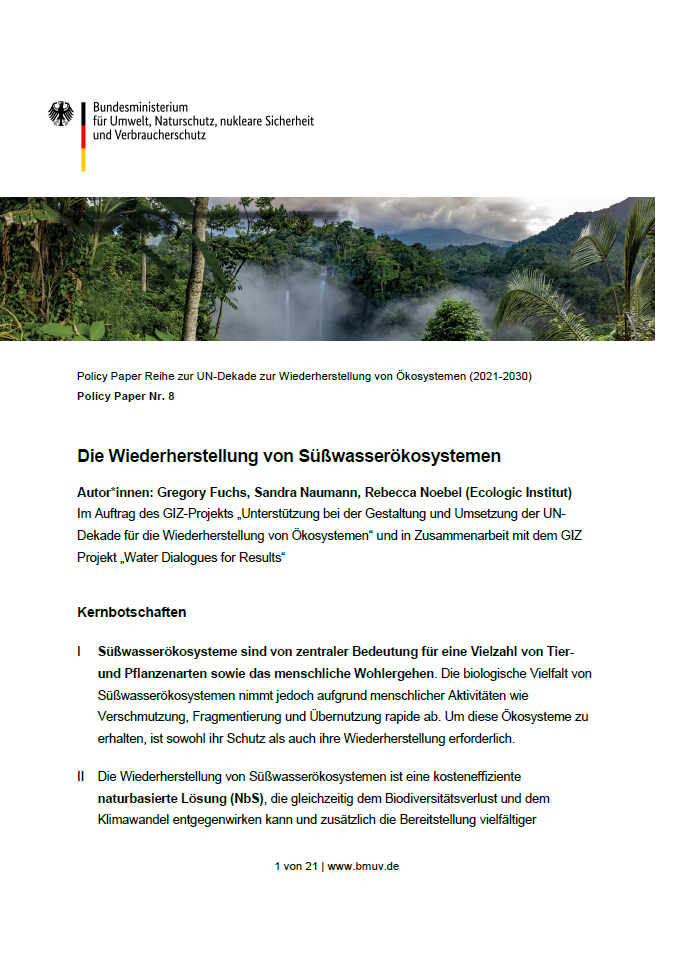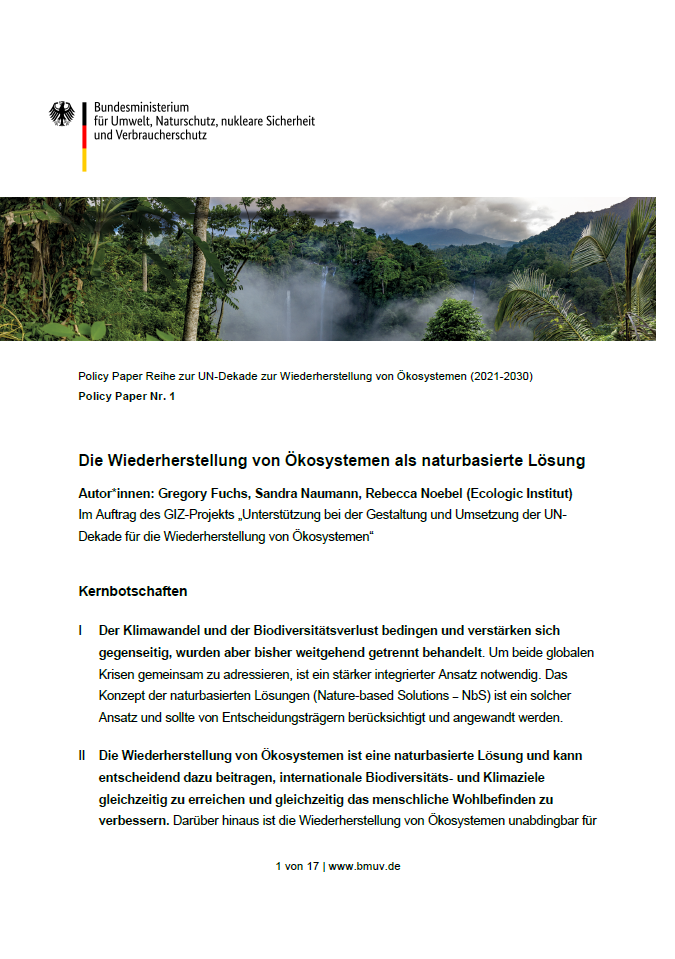Die Ergebnisse der CBD COP15 und ihre Bedeutung für die UN-Dekade zur Wiederherstellung von Ökosystemen
- Publication
- Citation
Fuchs, Gregory et al. 2023: Die Ergebnisse der CBD COP15 und ihre Bedeutung für die UN-Dekade zur Wiederherstellung von Ökosystemen. Papier Nr. 7 der Policy Paper Reihe zur UN-Dekade für die Wiederherstellung von Ökosystemen (2021-2030). Federal Ministry for the Environment, Nature Conservation, Nuclear Safety and Consumer Protection, Berlin.
This policy brief offers a nuanced analysis of the outcomes from CBD COP15. It particularly focuses on the adoption of the Global Biodiversity Framework (GBF) and its ramifications for the UN Decade on Ecosystem Restoration. It meticulously examines the GBF’s strategic objectives for 2050 and its 23 actionable targets for 2030, with a special emphasis on Action Target 2. This target advocates for the initiation of effective restoration processes across a minimum of 30% of all degraded terrestrial, inland water, coastal, and marine ecosystems by the year 2030. Furthermore, the document delves into the potential synergies between the GBF's restoration objectives and the global network, knowledge repository, and expertise fostered by the UN Decade on Ecosystem Restoration.
The paper was composed in 2023 and subsequently updated within the same year to reflect the latest scientific and policy advancements. It articulates policy recommendations designed to ensure the GBF’s ambitious restoration targets are achieved efficiently and on schedule. These recommendations advocate for a comprehensive approach that includes both naturally occurring and anthropogenically altered ecosystems in restoration efforts, a precise clarification of pivotal GBF terms, the enhancement of cross-sectoral collaboration, and the alignment of national biodiversity strategies with overarching global goals, while also addressing the root causes of ecosystem degradation and loss. It underscores the critical importance of strategically planned, cost-effective, and integrative restoration measures that leverage both active and passive restoration techniques, alongside the imperative of securing adequate financial resources and building requisite capacities. By capitalizing on the UN Decade on Ecosystem Restoration’s mechanisms for public engagement, awareness elevation, advisory capabilities, task forces, and dissemination of best practices, these policy recommendations are instrumental in fulfilling the objectives set forth by CBD COP15 and, ultimately, in cultivating a future characterized by robust biodiversity and rejuvenated ecosystems.
The 15th Conference of the Parties to the Convention on Biological Diversity (CBD COP15) marked a pivotal moment in global efforts to conserve and restore biodiversity. Held in December 2022, the conference produced the ambitious Kunming-Montreal Global Biodiversity Framework (GBF), which outlines a clear mission to halt and reverse the loss of biodiversity by 2030 and ensure humanity can live in harmony with nature by 2050.
